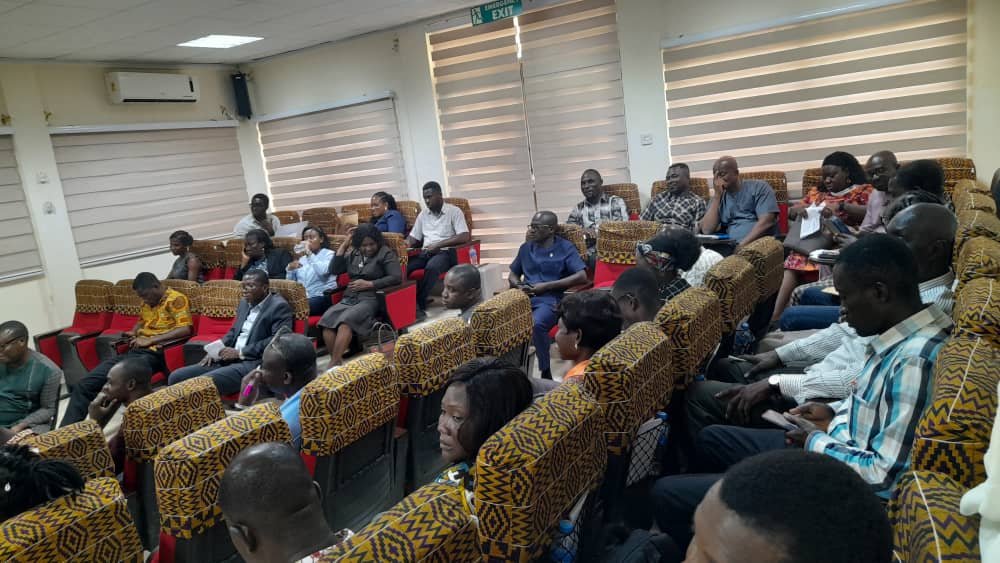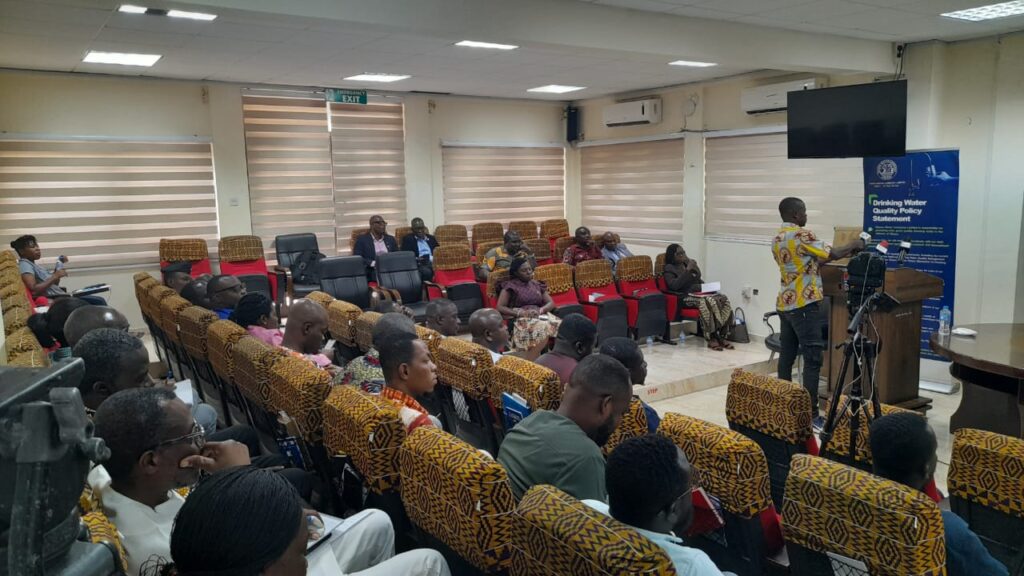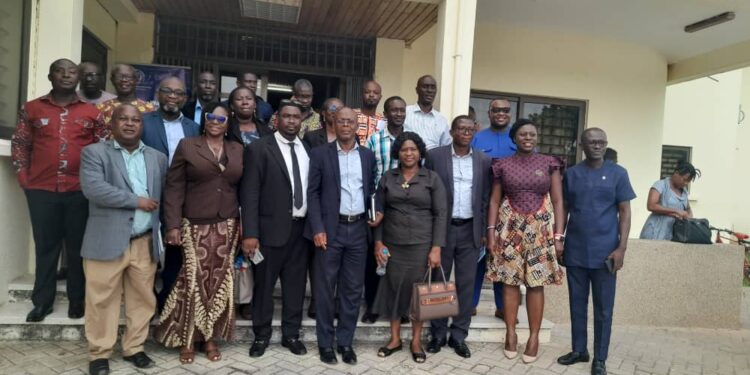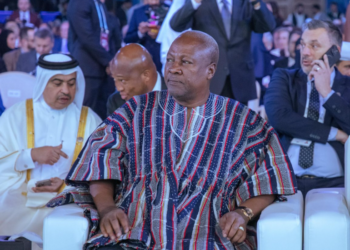To address the alarming rate of water pollution in the Central and Western Regions, The Ghana Water Company Limited(GWCL), UCC holds stakeholders workshop to deliberate on measures to curtail the situation.
Stakeholders from the media, academia, traditional authorities, NGOs, and industry among others ruled out the illegal mining on water bodies, especially the Pra River as the major cause.
Poor farming practices have also been predominant in the Central and Western Regions causing the alarming water pollution.
The stakeholder’s workshop was organized by The Ghana Water Company Limited (GWCL) and the Department of Civil and Environmental Engineering of the School of Sustainable Engineering at the University of Cape Coast.
Read Also: UCC to Confer Honorary Doctorate of Laws, LLD on Osabrima Kwesi Atta II
Speaking at the forum, the representative of the Managing Director of the Ghana Water Company Limited for the Central Region, Engineer Peter De-veer said the alarming rise in water pollution due to illegal mining, commonly known as galamsey threatens to undermine the GWCL efforts to provide potable water for all Ghanaians.
According to him, the reckless and indiscriminate discharge of harmful chemicals into rivers and streams, not only contaminates the water bodies but also endangers people and aquatic lives.
According to him, the workshop comes in timely, underscoring the need for collaborative efforts to crack down on illegal mining.

He said “this requires the close collaboration between law enforcement agencies and regulatory bodies, with the maximum cooperation and collaboration with our local authorities, Nananom to identify and dismantle all illegal mining sites and prosecute those responsible for the environmental degradation.”
Engineer De-veer cited the operations at Sekyere Hemang and Daboase water treatment plants using new costly chemicals in treating water due to pollution of its source, River Pra.
However, he indicated that “in spite of the high potency of this new treatment chemical, still, the rising levels of turbidity of the raw water is severely compromising the water quality and impose substantial operational burden on GWCL for the two treatment plants.”
On his part, President of the Ghana Chemical Association, Professor David Kofi Essumang said Ghana has never made the needed effort to achieve the sustainable goal six for the provision of portable water despite being a key signatory to the agreement.
He, therefore, warned that if immediate action is not taken to mitigate the fast pollution rate of the country’s water bodies, Ghana stands the risk of importing water in a few years to come.
“if we don’t make any serious effort to stop this menace, then in no time we’re going to lose all this water body… And so, if we are not careful, in no time water will become unwholesome and we cannot drink that water,” he continued.

Source: Flora Tang & Eric Sekyi/ATLFMNEWS


























